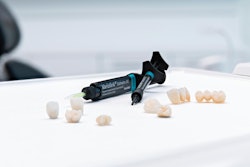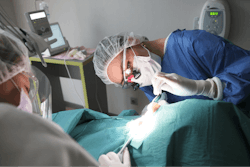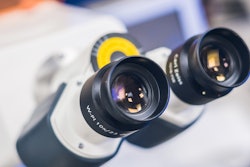Using ongoing bone regeneration research, University of Toronto’s Faculty of Dentistry researchers are studying whether DNA nanotechnology can restore teeth, possibly reducing the need for cavities to be filled, according to university news published March 25.
Preliminary studies have already shown the potential of injecting DNA gel, which is made by mixing two solutions together creating a structure that functions like scaffolding and induces minerals to restore bones, to promote bone healing.
These results will be applied to teeth to determine whether the DNA gel performs the same when it is exposed to human cells and saliva and how it can aid in the remineralization of dentin, according to the release.
“The cool thing about this is most treatments currently in dentistry involve filling the tooth with materials that don’t make the tooth stronger – in fact, they actually weaken them,” Mercedes Ing, a first-year student at the school’s pediatric graduate dentistry program who is working on the research, said in the news. “This could be extremely promising if we’re able to use the DNA gel to rebuild the dentin of the tooth.”
Additionally, utilizing DNA as a regenerative tool may limit the number of patients needing additional invasive dental treatments and root canals.
“Nowadays, in pediatric dentistry especially, we are trying to move towards minimally invasive dentistry and fewer visits,” Ing said. “The ultimate goal is to be able to apply this gel to help promote more healing.”




















